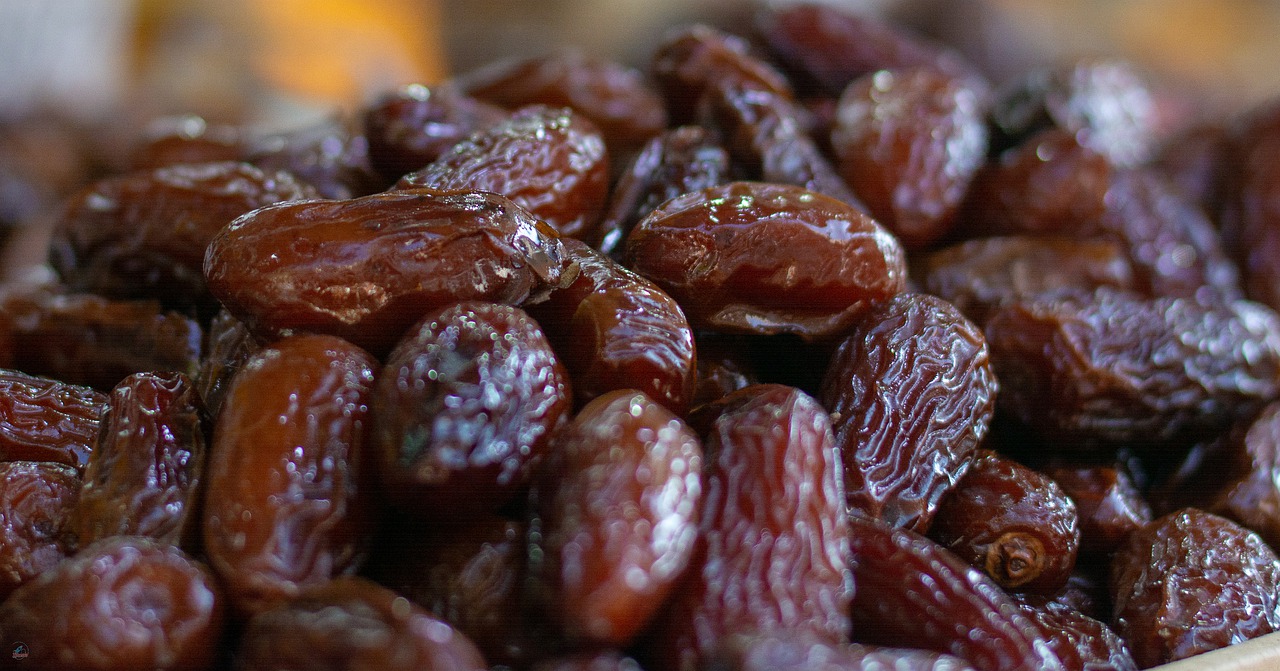Benefits
- An excellent Source of Potassium
- A good source of Iron, Niacin, and Vitamin B6
- High in Fibre
Drawbacks
- High sugar content and stickiness promote tooth decay
Priced for their sweet fruits, date palms are among the oldest cultivated trees; they have been grown in North Africa for at least 8,000 years. These desert trees are extraordinarily fruitful, producing up to 200 dates in a cluster.
Fresh dates are classified according to their moisture content, falling into three categories: Soft, semisoft, and dry. Most varieties in North America are semisoft, which are marketed fresh, as well as dried after part of their moisture has been evaporated.
With 60 to 70 percent of their weight coming from sugar, dates are one of the sweetest of all fruits. One-half cup (about 12 medium dates) contains about 275 calories—many more than most fruits. They are very high in potassium ; 12 dates provide 650 mg, more than a comparable amount of other high-potassium foods, such as bananas and oranges. Twelve dates also provide 15 percent or more of the Recommended Dietary Allowance of iron, niacin, and vitamin B6, as well as 6g of fiber. However, dates have almost no vitamin C.
Dates contain tyramine, an organic compound found in aged cheese, certain processed meats, red wine, and other products. Anyone taking monoamine oxidase (MAO) inhibitors to treat depression should avoid dates, because tyramine can interact with these drugs to produce a life-threatening rise in blood pressure.In some people, tyramine can also trigger migraine headaches.
It’s important to brush your teeth after eating dates. Both the dried and fresh fruits are very sticky, and because of their high sugar content, they can lead to dental decay if bits are allowed to adhere to the teeth.


